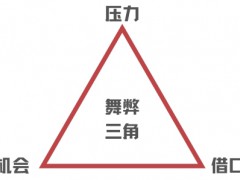???? 據油價網3月18日消息:國際能源署(IEA)在一份新報告中表示,由于燃料效率的提高和電動汽車的日益普及,全球汽油可能已達到頂峰,并指出這些趨勢抵消了新興經濟體流動性的增長。
????這份展望未來五年的報告還指出,由于政府政策支持更加強勁,有利于可再生能源和行為的改變,石油需求峰值可能即將到來。
????IEA負責人Fatih Birol說:“ 新冠肺炎危機導致了全球石油需求的歷史性下降,但這種下降不一定會持續。實現有序的石油過渡對于實現氣候目標至關重要,但這需要政府做出重大政策調整以及行為方式的加速轉變。否則,從現在到2026年,全球石油需求每年都會增加。”
????IEA預計,在缺乏更強有力的能源政策的情況下,到2026年全球石油需求將增長約1000萬桶/天,其中一半將來自中東關閉的產能。這將再次增加歐佩克在國際市場上的影響力,代價是美國頁巖鉆探商需要更高的油價才能恢復生產增長。
????然而,所需的一些額外石油供應將不得不來自新的產能。根據IEA數據,新產能約為500萬桶/天。不過,該機構認為目前不必著急,因為在疫情大流行期間,石油閑置產能約為900萬桶/天。
????Birol表示,盡管石油需求在增加,但沒有任何一家油氣公司會不受到清潔能源轉型的影響,因此,該行業的每個部門都將需要考慮如何應對,因為在推動全球凈零排放勢頭不斷增強的情況下,減排是化石燃料行業面臨的最大問題。
????馮娟 摘譯自 油價網
????原文如下:
????IEA: Gasoline Demand May Never Fully Recover
????Global gasoline may have peaked, thanks to fuel efficiency gains and the growing popularity of electric vehicles, the International Energy Agency said in a new report, noting that these trends offset growth in mobility in emerging economies.
????The report, which looks at the next five years, also suggests peak oil demand may be near, thanks to stronger government policies—if they materialize—in favor of renewable energy, and behavioral changes.
????“The Covid-19 crisis caused a historic decline in global oil demand – but not necessarily a lasting one,” IEA’s chief, Fatih Birol, said. “Achieving an orderly transition away from oil is essential to meet climate goals, but it will require major policy changes from governments as well as accelerated behavioural changes. Without that, global oil demand is set to increase every year between now and 2026.”
????In the absence of stronger energy policies, the IEA projects global oil demand growth of some 10 million bpd by 2026, half of which would come from the Middle East from shut-in capacity. This would once again increase OPEC’s clout on international markets at the expense of U.S. shale drillers, who need higher oil prices before they return to production growth.
????Some of the additional supply of oil that will be needed will have to come from new production capacity, however. According to the IEA, this new production capacity is around 5 million bpd. There is no rush, however, because right now, amid the pandemic, there is some 9 million bpd in spare oil production capacity, the agency noted.
????Even with demand for oil on the rise, however, no part of the industry will remain untouched by the energy transition, Birol said.
????“No oil and gas company will be unaffected by clean energy transitions, so every part of the industry needs to consider how to respond as momentum builds behind the world’s drive for net-zero emissions,” he said, noting things like carbon capture and methane emission reduction among the biggest issues facing the fossil fuel industry.
免責聲明:本網轉載自其它媒體的文章,目的在于弘揚石化精神,傳遞更多石化信息,并不代表本網贊同其觀點和對其真實性負責,在此我們謹向原作者和原媒體致以敬意。如果您認為本站文章侵犯了您的版權,請與我們聯系,我們將第一時間刪除。







